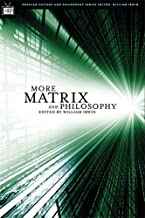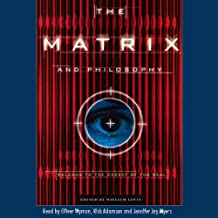I’m not sure what you’re asking here.
“The real distinction of mind and body based on their completely diverse natures is the root of the famous mind-body problem: how can these two substances with completely different natures causally interact so as to give rise to a human being capable of having voluntary bodily motions and sensations?” (Wikipedia)
I don’t think mind and body are “two substances with completely different natures.” I think they only seem to be two substances with different natures due to the subjective nature of knowing/perceiving.
I believe that once we fully account for the subjective nature of knowing/perceiving, the mind-body problem(s) will be resolved.
I think the degree of subjectivity of knowing/perceiving has been traditionally underestimated ( bold claim) and particularly its role in the mbp has been missed ( another bold claim ).
Russel ( and others ) have discussed the subjective nature of knowing/perceiving and used it to make the intrinsic nature argument. But individuals like Dennett, Bach and Clark make arguments suggesting that reality need not be intrinsically phenomenal in order for phenomenal, qualitative experience to exist.
Dennett might say the phenomenal aspect of consciousness is an illusion, Bach would say its virtual, and Clark might say its representational.
I’m agnostic about the nature of reality beyond our subjective knowing/perceiving of it. However I believe any seeming distinction in natures between mind and body are the result of the subjective nature of knowing/perceiving and are not actual distinctions.
"I don’t think mind and body are “two substances with completely different natures.” I think they only seem to be two substances with different natures due to the subjective nature of knowing/perceiving." - right, there are very few substance dualists out there
"I believe that once we fully account for the subjective nature of knowing/perceiving, the mind-body problem(s) will be resolved." Pretty much by definition, how could we fully account for the subjective nature of knowing/perceiving
without resolving the mind-body problem? (unless we are dualists, but you ruled that out above)
"I think the degree of subjectivity of knowing/perceiving has been traditionally underestimated ( bold claim) and particularly its role in the mbp has been missed ( another bold claim )."
This is exactly where I think you are trying to say something more/different but you are going to have to say more and differently to make it apparent. So ...
"Russel ( and others ) have discussed the subjective nature of knowing/perceiving and used it to make the intrinsic nature argument. But individuals like Dennett, Bach and Clark make arguments suggesting that reality need not be intrinsically phenomenal in order for phenomenal, qualitative experience to exist.
Dennett might say the phenomenal aspect of consciousness is an illusion, Bach would say its virtual, and Clark might say its representational."
Sure and all that's missing is the how. Dennett side steps that, but all you have to do is look at your own
experience of that illusion...the other two just don't say at all how experience has to be attached to the simulation or the representation, you can say (proclaim) experience is the representation but does that get rid of the gap? Why is a zombie inconceivable? For the same people that say that, is an intelligent computer without consciousness conceivable?
"I’m agnostic about the nature of reality beyond our subjective knowing/perceiving of it. However I believe any seeming distinction in natures between mind and body are the result of the subjective nature of knowing/perceiving and are not actual distinctions."
So either
1. you're
not agnostic about the nature of reality beyond our subjective knowing/perceiving of it
2. or we can know (from our subjective knowing/perceiving) that any seeming distinction in natures between mind and body are the result of subjective knowing/perceiving
?








